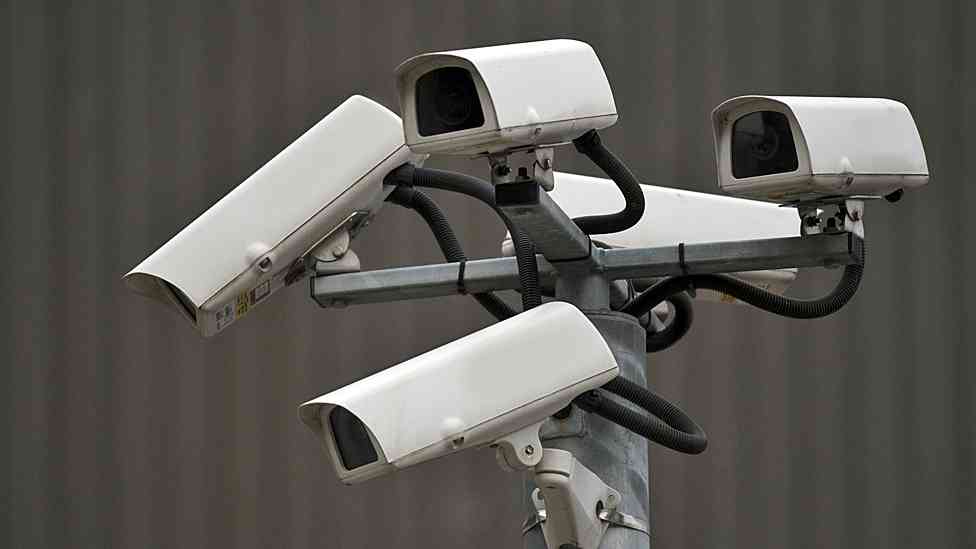
African countries are installing closed circuit television (CCTV) cameras and surveillance technologies without regulation frameworks and national CCTV and surveillance national policies.
The spread of these CCTV and surveillance technology in Africa without adequate checks and balances is reshaping the governance landscape but there is a serious discussion that these tools will be potentially used as tools of repression.
In 2019, The Ugandan police acquired USD$126 million worth of CCTV surveillance technology from the Chinese telecommunications giant Huawei to help control and contain Kampala's growing crime problem. Opposition and civil society leaders believe that the surveillance cameras, which rely on facial recognition technology, will be used to track down, identify and target government critics.
Similar concerns have emerged across the continent as countries like Algeria, Botswana, Côte d’Ivoire, Egypt, Ghana, Malawi, Nigeria, Rwanda, South Africa, Tanzania, Uganda, Zambia and Zimbabwe have deployed surveillance devices in recent years.
These countries represent a range of political systems, and the intended purposes of the surveillance systems vary. Nonetheless, these technologies present challenges to the daily norms and practices. Lawyers, activists and digital rights organisations have raised concerns over the privacy of an ordinary citizen. Governments and local authorities are introducing these technologies without national policies, institutional checks and balances and are exposing citizens to surveillance.
The growing accessibility of monitoring products in Africa has been made possible by the sales of foreign technology supported by soft loans, provided by Chinese banks, the presence of the Chinese telecommunications giant, Huawei and other Chinese firms, which have built over 70% of the 4G network infrastructure on the African continent and private cyber security and surveillance firms from Israel, the United Kingdom, Germany and Italy, among others, have also been active in Africa.
With these technologies on the continent, African institutions are now able to access your information using "remote-control hacking”. These surveillance systems enable state institutions to access files on targeted laptops. They also log keystrokes and passwords as a means to turn on webcams and microphones.
Eavesdropping is another surveillance technique that allows state institutions to access calls, texts, and the locations of phones around the world. This technique is most closely linked to the Bulgarian-based surveillance firm Circles, an affiliate of the NSO Group, which developed the infamous Pegasus software, which provides spyware technology to countries as a means to exploit faults in telecom systems. Several governments in Africa such as Botswana, Equatorial Guinea, Kenya, Morocco, Nigeria, Zambia and Zimbabwe, are reportedly using these systems to connect to their local telecommunications companies’ infrastructure to conduct surveillance.
- New details of ‘Passion Java accident’ emerge
- New details of ‘Passion Java accident’ emerge
- CCTV for Ingutsheni
- CCTV for Ingutsheni
Keep Reading
The push for developing Smart Cities has led to the adoption of surveillance products in Africa which is closely linked to Huawei’s Safe Cities projects. The Safe Cities concept makes use of a range of interconnected tracking devices, video cameras, software and cloud storage systems to tap public and private platforms in a more cohesive manner to enhance public goals such as policing, managing traffic and streamlining administrative services. Access to this web of systems ostensibly increases the visibility of police officers and local authorities who can then agilely track and respond to crime in real time.
The impulse for governments to control information in a society and surveil citizens has always existed. In fact, this has been the focus of many African intelligence services over the years. The adoption of new surveillance technology in Africa, however, has dramatically empowered governments to do so and at a scale not previously seen. What may have taken a whole army of operatives to do in the past can now be accomplished by a few engineers.
Building on country-level reform strategies and best practices, African legislators and digital rights advocacy groups can strengthen norms and regulations surrounding surveillance technology by establishing AU advisory panels to lay out recommendations.
The African Union Convention on Cyber Security and Personal Data Protection was established in 2014 to provide a framework for cyber security in Africa. As part of this, member states are asked to establish national cyber security policies as well as legal, regulatory, and institutional frameworks for cyber security governance. Yet, the Convention requires the ratification of 15 countries to take effect. Thus far, only five countries (Namibia, Senegal, Ghana, Guinea, and Mauritius) have done so.
The absence of a clear regulatory framework leaves many African countries vulnerable to misuse of surveillance technologies.
While individual countries must continue to work toward domestically driven policy solutions, facilitating a shared understanding of regulatory approaches to these devices can accelerate the means to confront common concerns and illegitimate uses. By taking advantage of already established frameworks, these advisory panels can provide the necessary counsel on whether appropriate checks and balances are in place.
A common regulatory approach also has value given the increasing inter-connectedness of information communication technology systems across nations. Additionally, many African countries lack the capacity in terms of expert personnel to facilitate the development and implementation of cyber security policy and regulatory frameworks. A common regulatory approach offers a collection of tools, policies, and guidelines that can enable local actors to more quickly protect their respective cyber environments For more details please Whatsapp/call +263772278161.
Mutisi is the CEO of Hansole Investments (Pvt) Ltd. He is the current chairperson of Zimbabwe Information & Communication Technology, a division of Zimbabwe Institution of Engineers.











